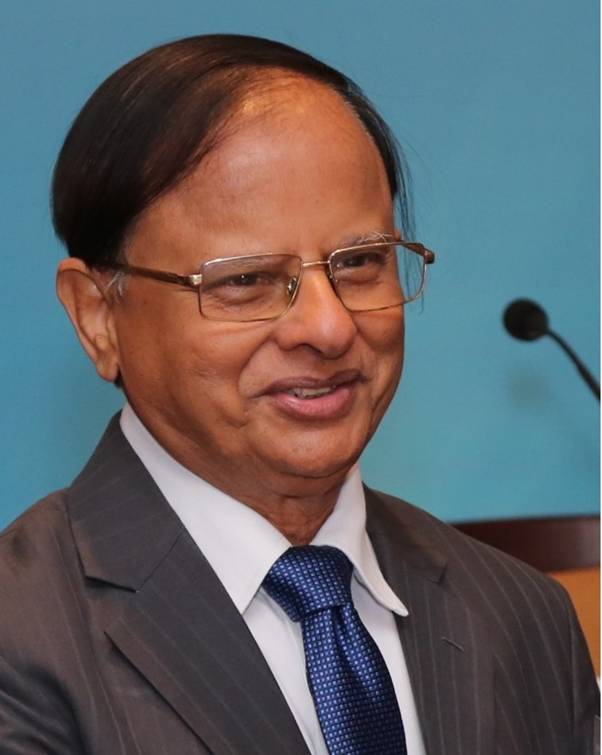Mumbai: Dr. P. K. Mishra, Principal Secretary to the Prime Minister, addressed the 68th Graduation Function at the Bhabha Atomic Research Centre (BARC) Training School today, marking a significant moment for India’s scientific future. Dr. Mishra commended BARC’s enduring legacy and Dr. Homi Jehangir Bhabha’s vision, praising the institution’s excellence in training and its pivotal contributions to India’s development.
Highlighting India’s global ascent, Dr. Mishra attributed this rise to internal transformation and evolving international dynamics, citing the nation’s youthful demographics, expanding infrastructure, and remarkable technological achievements as key strengths. He articulated the Prime Minister’s vision for a ‘Viksit Bharat’ (Developed India) by 2047, emphasizing the transformative power of ‘reform, perform, and transform’ in achieving this ambitious goal.
Dr. Mishra underscored numerous national successes, including India’s position as the third-largest startup ecosystem with over 100 unicorns. He also pointed to the massive scale of India’s digital infrastructure, evidenced by UPI processing over 185 billion transactions in 2024-25. Furthermore, he highlighted India’s bold climate commitments, such as achieving 500 GW of non-fossil fuel capacity by 2030, and initiatives like the National Green Hydrogen Mission.
Drawing parallels with the successful opening of the space sector to private participation, Dr. Mishra noted that similar initiatives are envisaged for atomic energy, recognizing its critical importance for both clean energy and national security. He specifically mentioned key announcements from the 2024-25 Union Budget, including R&D support for Bharat Small Modular Reactors and advanced nuclear technologies. A targeted expansion to 100 GW of nuclear capacity by 2047, with proposed legislative amendments to facilitate private sector involvement, was also highlighted.
Underscoring the broader societal impact of nuclear energy, Dr. Mishra detailed the use of radioisotopes in cancer care and radiation technologies for wastewater treatment and agricultural storage. He celebrated recent budgetary provisions aimed at boosting food irradiation infrastructure, noting the sanctioning of 50 Multi-Product Food Irradiation Units for the MSME sector under the 2024-25 Union Budget. He also cited the success of projects under the Pradhan Mantri Kisan Sampada Yojana, with 16 projects sanctioned since 2008 (9 operational) and 19 functional facilities since 2000. These irradiation facilities across 12 states are crucial for enhancing shelf-life and ensuring compliance with international phytosanitary standards for various food products.
Dr. Mishra urged the scientific community to focus on commercializing spin-off technologies from research labs, acknowledging the profound changes in the post-COVID world, including ongoing global conflicts and their impact on geopolitical alignments and economic stability. He emphasized India’s independent nuclear journey, recognized globally through milestones like the agreement with the United States, the NSG waiver, and participation in ITER, reinforcing India’s stature in international nuclear cooperation. He stressed that nuclear energy presents a significant opportunity for sustainable growth and clean power to address climate challenges.
Recognizing the capital-intensive nature of nuclear energy projects, Dr. Mishra stressed the importance of timely completion, access to low-cost finance, and leveraging private sector capabilities to reduce tariffs and improve feasibility. He encouraged researchers to innovate cost-reduction strategies to make nuclear energy India’s preferred power source.
Finally, Dr. Mishra underscored the paramount importance of strengthening safety governance, citing the roles of the Atomic Energy Regulatory Board and the BARC Safety Council. He called for revisiting regulatory mechanisms and investing in further safety-related research, especially with expanding private sector participation, asserting that public confidence in safety standards must remain a top priority. He concluded by urging the graduates to embrace lifelong learning, adapt to change, and foster openness, respect, and humility in collaborative environments, emphasizing that technical proficiency must be matched by attitude and approach in stakeholder interactions. He encouraged the new Scientific Officers to seize opportunities and equip themselves to navigate future challenges and transformations.


